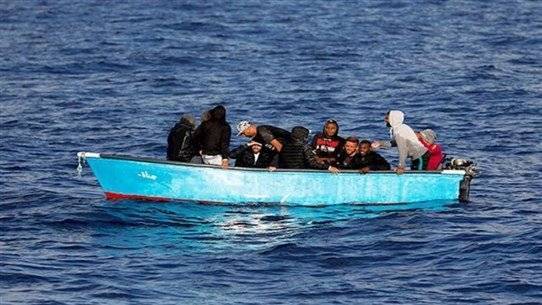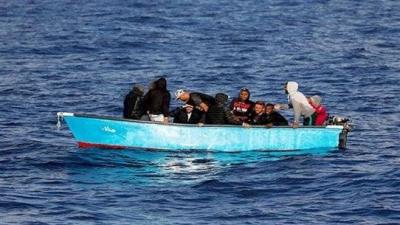In Lebanon, attempts at illegal immigration towards several European countries are on the rise, with hardly a day passing without one or more journeys departing from the north of the country, carrying dozens of Lebanese and Syrians in an attempt to reach the old continent. This trend has not been deterred by the sinking of a large boat off the coast of Tripoli last April, which resulted in the drowning of over 30 migrants onboard, with recovery efforts failing as they turned to what resembled... ashes.
**Cost of Illegal Immigration**
One illegal trafficker confirmed to "Al-Rai" that the primary and fundamental reason driving citizens to embark on illegal immigration is the unbearable economic situation that has made them unable to secure their daily sustenance. He added, "The majority of migrants come from poor social classes, selling their possessions such as cars, homes, or other belongings, and some even resort to borrowing money to cover the trip's costs." He noted that these costs usually range from $5,000 to $7,000, depending on the number of people on the boat.
**Death Trips**
The trafficker emphasized that these journeys depart from various locations along the Lebanese shore, specifically from the north, while illegal trips departing from the capital Beirut are very limited. He pointed out that the primary destination during this period is Italy, where migrants aspire to enter Europe, planning to later move to other countries, especially Germany. He explained that this trip typically takes about 7 to 8 days, but many boats experience engine failure or other malfunctions near the shores of Cyprus, leading Cypriot authorities to return migrants to Lebanon.
He continued that the boats leave the port in a normal manner, as they are registered under the name of one of the fleeing individuals, determining a meeting point on the beach to transport the remaining migrants, usually ranging from 70 to 100 people, depending on the capacity of the boat used.
In this context, local media reported the departure of over a hundred citizens, mostly from the city of Tripoli (in the north), from Lebanese territory via the sea toward the European continent during the early hours of last Thursday through one of the illegal migration boats. Meanwhile, efforts by security forces and agencies continue to track traffickers and combat the phenomenon of illegal immigration, based on signed agreements between countries that mandate addressing this issue.
**Individual Initiatives**
With the increase in these trips, many now rely on individual efforts away from traffickers, as one person takes on the task of securing the boat, then promotes the idea in some popular circles and among relatives. They share the cost of the rudimentary boat before equipping it with a communication system and life jackets, as well as a power-boosting engine and a backup engine, in addition to fuel and water. The next step involves setting a specific departure time, taking into account the location and timing, ensuring that the weather conditions are stable to prevent the boat from facing any currents or waves.
**Survival of One Boat**
On August 27, a boat carrying about 76 people set out heading for the Italian coasts, but experienced engine failure off the coast of Crete. The "Wadi Karnak" vessel, owned by the Egyptian National Navigation Company, intervened to rescue them after receiving an alert from the American Protection and Indemnity Club about distress signals from a boat in the vessel's navigation area, according to a statement from the Egyptian Ministry of Transport.
A 4-year-old Syrian girl, Lujain Ahmad Nasif, who was aboard the boat with her family, died while being transported by ambulance to a Greek hospital. Her mother's health condition was described as "very critical." In this regard, Abu Ayman Al-Mishmashani, the father of one of the migrants on that trip, told "Al-Rai" that he communicated with his son on the boat, who informed them that they had arrived in Crete, Greece. He added, "The poor economic situation is what drove my son to sell his car and borrow money to pay $16,000 for boarding with his family, consisting of his wife and five children."




